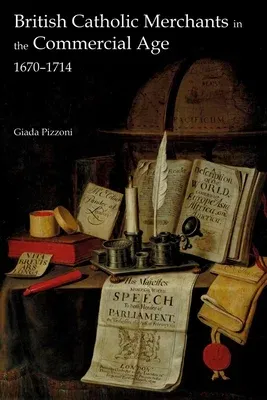British Catholic merchants in the long eighteenth century occupied an
ambiguous social space. On the one hand, their religion made them
marginal and suspect figures in a nation increasingly defining itself by
its Protestantism against the Catholic powers of Europe. On the other,
their Catholicism, particularly as national rivalries erupted into
outright war, afforded them access to markets and contacts overseas
which their Protestant competitors found it increasingly difficult to
reach.
Drawing on extensive original research on the business papers of one
prominent Catholic merchant family, the Aylwards, Pizzoni maps a complex
network of merchants emanating from trading houses in London, Cadiz and
St Malo and linking Britain and Ireland, continental Europe, the Levant
and colonial America. She reveals the high level of cooperation between
these Catholic houses and their Protestant trading partners - a
cooperation which seems to have overridden even such political perils as
the Jacobite rebellion - and shows the increasing role played by
smuggling and privateering in keeping the wheels of legitimate commerce
turning in time of war. A final chapter looks particularly at the
business activities of Roman Catholic women, who mostly inherited their
husbands' businesses but in many cases developed and expanded them
through new activities and investments.
This is a rich picture of commercial life in a time of shifting
political and religious attitudes when the pressures of mercantilism led
to de facto economic integration for the successful Catholic merchant
class and opened up the road which would lead to emancipation in the
next century.
GIADA PIZZONI is a Postdoctoral Research Associate at the University of
Exeter.

